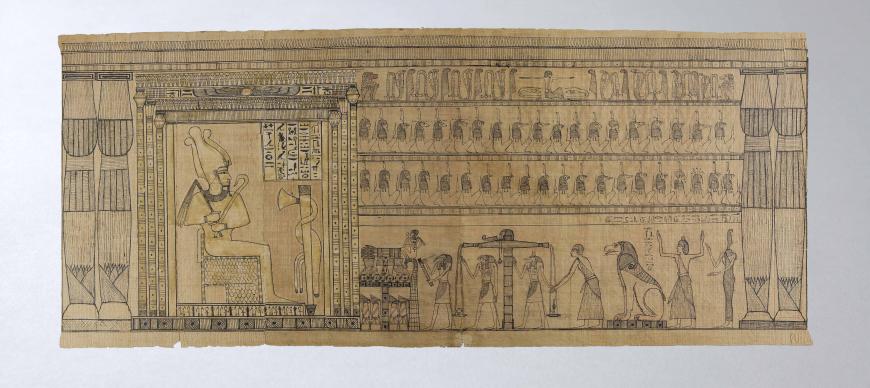The Book of Thoth
In Egyptian mythology, a book containing the secrets of the universe, written by the god Thoth.

From The University of Chicago
The Book of Thoth is a mythical book in Egyptian mythology, said to have been written by Thoth, the god of wisdom and writing. The book is believed to contain two spells—one to understand animals and the gods, and the other to understand the mind of the gods. It is often depicted as a source of immense wisdom and knowledge, holding the secrets of the universe and magic. In various stories, the pursuit of the book's knowledge leads to tragedy, reflecting the dangers of seeking forbidden knowledge.
According to legend, the Book of Thoth was hidden in a secret chamber and guarded by serpents and other mystical creatures. Those who sought the book had to undergo a series of trials and challenges to prove their worthiness. The tales often serve as cautionary narratives about the cost of greed and the peril of overreaching one’s human limitations.
The book was not just a repository of knowledge but was also thought to be imbued with magical power. Possessing it was believed to grant the reader abilities such as becoming the most powerful magician in the world, being able to predict the future, and understanding the language of animals. However, these powers came with a heavy price, often leading to misfortune or doom for those who dared to tamper with the book’s secrets.
In Egyptian mythology, Thoth was revered as the inventor of writing and the scribe of the gods, making the Book of Thoth a symbol of divine knowledge. The legend of the book emphasizes the Egyptian belief in the power of magical and sacred words and texts.
The myth of the Book of Thoth has had a lasting impact on cultural and literary works, inspiring various stories and representations in modern books, movies, and other media. It continues to fascinate as a symbol of the ultimate pursuit of knowledge and the ethical dilemmas and risks that come with such a quest. The Book of Thoth remains a powerful metaphor for the unending human search for wisdom, and the respect and caution that such a search demands.
Wikipedia